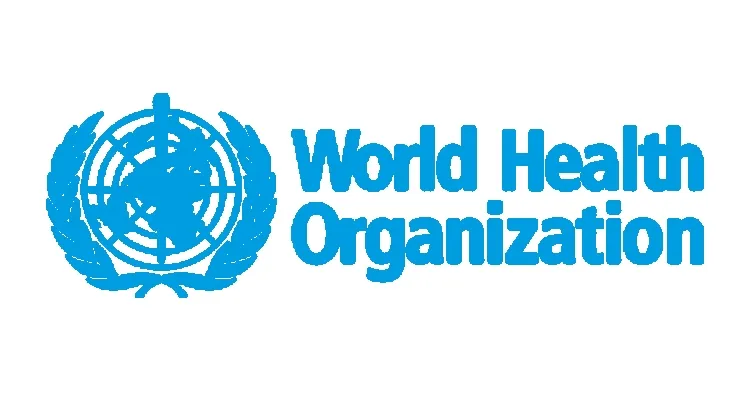World Health Organization (WHO): An Overview...!!!
The World Health Organization (WHO) is a vital institution in the global health landscape. Its mission to promote health, protect against health emergencies, and ensure health equity drives its multifaceted work.

The World Health Organization (WHO) is a specialized agency of the United Nations (UN) responsible for international public health. Established on April 7, 1948, the WHO plays a crucial role in coordinating global health efforts, setting health standards, and addressing public health challenges. With its headquarters in Geneva, Switzerland, the WHO works with 194 member states, numerous partners, and a network of collaborating centers worldwide.
Mission and Objectives
The WHO's primary mission is to promote health, keep the world safe, and serve the vulnerable. Its objectives include:
-
Universal Health Coverage: Ensuring that all people have access to the health services they need without suffering financial hardship.
-
Health Emergencies: Protecting people from health emergencies, such as outbreaks of infectious diseases and natural disasters.
-
Health and Well-Being: Promoting healthier populations by addressing the social, environmental, and economic determinants of health.
Core Functions
The WHO's core functions are diverse and encompass a wide range of activities aimed at improving global health:
-
Providing Leadership: The WHO leads on global health matters, shaping the research agenda, setting norms and standards, and articulating evidence-based policy options.
-
Research and Evidence: Conducting research and providing evidence-based guidelines to inform health policies and practices.
-
Setting Standards: Establishing international standards for health products, practices, and policies to ensure safety, efficacy, and quality.
-
Technical Support: Offering technical assistance to countries to strengthen their health systems and improve health outcomes.
-
Monitoring Health Trends: Monitoring global health trends and assessing health challenges to inform public health strategies.

Key Initiatives and Programs
The WHO undertakes numerous initiatives and programs to address various health challenges:
-
Immunization and Vaccines: The WHO's immunization programs aim to increase vaccine coverage and prevent vaccine-preventable diseases. Initiatives like the Global Vaccine Action Plan (GVAP) work towards eradicating diseases such as polio and measles.
-
Communicable Diseases: The WHO works to combat infectious diseases such as HIV/AIDS, tuberculosis, malaria, and emerging pathogens like Ebola and COVID-19. The organization provides guidelines, supports surveillance, and coordinates response efforts.
-
Non-Communicable Diseases: Addressing non-communicable diseases (NCDs) such as cardiovascular diseases, cancer, diabetes, and chronic respiratory diseases is a priority for the WHO. The organization promotes healthy lifestyles, early detection, and effective management of NCDs.
-
Maternal and Child Health: The WHO focuses on improving maternal, newborn, and child health through initiatives like the Global Strategy for Women's, Children's, and Adolescents' Health. Efforts include enhancing access to quality healthcare, promoting safe childbirth practices, and addressing malnutrition.
-
Mental Health: The WHO advocates for mental health awareness, prevention, and care. Initiatives such as the Mental Health Action Plan aim to integrate mental health services into primary care and reduce the stigma associated with mental disorders.
-
Health Systems Strengthening: The WHO supports countries in building resilient health systems that can deliver quality healthcare services to all. This includes workforce training, health financing, and infrastructure development.
-
Environmental Health: Addressing environmental determinants of health, such as air pollution, climate change, and access to clean water and sanitation, is critical for the WHO. Programs focus on reducing environmental risks and promoting sustainable development.
Response to Health Emergencies
The WHO plays a pivotal role in responding to health emergencies. During outbreaks of infectious diseases, the WHO coordinates international efforts to contain the spread, provide technical guidance, and support affected countries. The organization also manages the Health Emergencies Program, which focuses on preparedness, response, and recovery.
The WHO's response to the COVID-19 pandemic exemplifies its role in health emergencies. The organization provided guidelines, coordinated global efforts to develop and distribute vaccines, and supported countries in implementing public health measures.
Collaboration and Partnerships
Collaboration and partnerships are essential to the WHO's work. The organization collaborates with governments, international agencies, non-governmental organizations (NGOs), academia, and the private sector to achieve its goals. Key partnerships include:
-
The Global Fund: A partnership to fight AIDS, tuberculosis, and malaria.
-
GAVI, the Vaccine Alliance: A global health partnership to increase access to immunization.
-
The World Bank: Collaborates on health financing and policy initiatives.
The World Health Organization (WHO) is a vital institution in the global health landscape. Its mission to promote health, protect against health emergencies, and ensure health equity drives its multifaceted work. Through its leadership, research, standard-setting, and technical support, the WHO plays a critical role in improving health outcomes worldwide. Collaboration and partnerships further enhance its impact, making the WHO a cornerstone of international public health efforts.
What's Your Reaction?

















